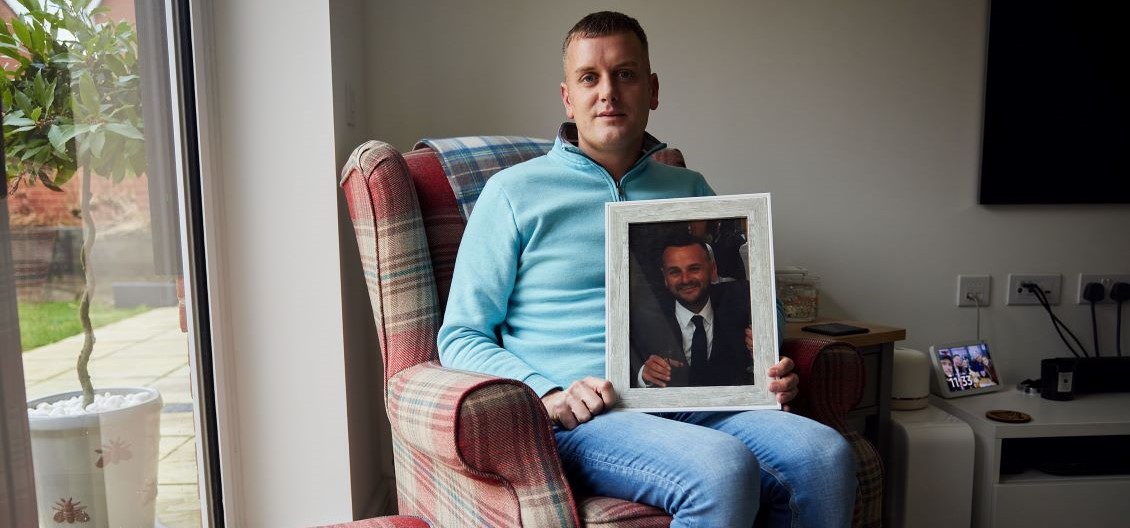
Gary collapsed at work with diabetic ketoacidosis (DKA) and was taken to hospital where they diagnosed him with type 1 diabetes. Iain, Gary’s husband, met him 2 years after his diagnosis. Sadly, Gary passed away from diabetes-related complications last year age 37.
"That very first touch point after diagnosis is where I think, in a perfect world, we would have mental health professionals get involved in that initial stage to try and help support somebody to understand what they need to do differently. That was the biggest challenge for Gary. He had 23 years without diabetes, and then suddenly somebody is saying you’ve got to change your life and everything you do."
Gary faced a lot of complications including developing diabetic ulcers, diabetic neuropathy and shooting pains.
"Gary was a very private person. He wasn’t interested in asking for help. I think he was done in his own mind with his diabetes care. He was at a point of nobody is going to help me, I’ll manage it until I can’t manage it anymore. As I’m sure many other people with type 1 diabetes do, Gary needed much greater mental health support. I don’t think anyone really realises how serious the condition is. Most people just see it as an invisible illness, and don’t consider how the hypos and complications would affect him and his body.
One time when he was hospitalised through his diabetes, he was offered mental health support, but it wasn’t part of his routine diabetes care. There were times when his HbA1c was higher that he would be seen every 6 months by the clinic instead of yearly, but the challenge was the follow-ups. He’d be given food diaries but there wouldn’t be a follow up. His care was a bit sporadic and inconsistent.
There doesn’t seem to be all the relevant services available that a person with type 1 diabetes would need. And they’re just left to manage the best way they can. Most of the time they would do his HbA1c levels and tell him that he needed to bring it down. But there were no solutions given.
Like anything in life, people always make the difference. There were a couple of particularly good diabetes nurses at the clinics Gary went to. A diabetes nurse pushed for him to get on DAFNE, a dose adjustment for normal eating programme. That was really helpful, and an example of good care. The difficulty is out of sight out of mind. I think once you’re not there in front of them, or referred to somewhere, then you’re forgotten about until your next appointment. So, it was inconsistent.
In my opinion he should have gotten access to tech and other healthcare professionals earlier. We could have been in a place of prevention. When I first met Gary, he didn’t have any complications - it's an example of just how quickly things can escalate when you're left in a position where you're not managing your sugar levels correctly."
If Iain could change one thing for other people, it would be support at the initial diagnosis, with better education and training on how to manage your blood sugar levels.
"Gary didn’t know until we did DAFNE, how his levels could be affected when he was unwell. When you have a cold you may need to take more insulin, but no one had ever told him that. There needs to be so much more support, such as education at initial diagnosis along with good and ongoing mental health support.
It comes down to education because nobody takes diabetes seriously. There’s a lack of understanding generally as to what it does to somebody’s body, and the impact it has on the person."
